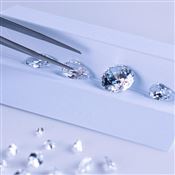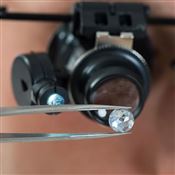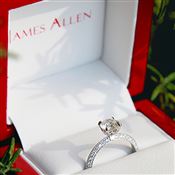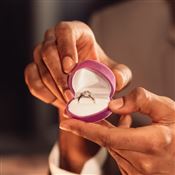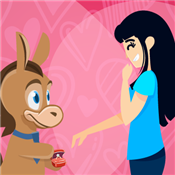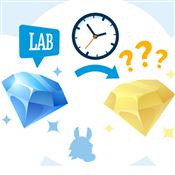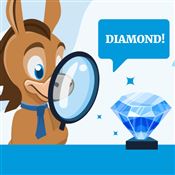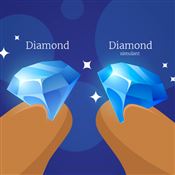Why Aren't Millennials Buying Diamonds
Millennials are disrupting the diamond industry in a big way. Check out their changing attitudes and trends for engagement ring shopping.
 |
Food photos on Instagram. Organic-only groceries. Marie Kondo and houseplants.
The millennial aesthetic is built on minimalism and experiential living. So where does an age-old tradition like diamond engagement rings fall on this spectrum?
Let's explore this generation's consumer habits.
Do Millennials Even Like Diamonds?
To be clear, millennials aren't anti-diamond. But unlike their parents, they're much more conscious of exploitative labor practices and environmental impact.
Gone are the days when consumers only cared about the four C's (cut, color, clarity, and carat). Now, younger generations want to know how and where their diamond was mined, cut, and polished.
And companies have noticed. The 183-year-old jeweler, Tiffany, has promised more transparency for diamonds amid greater concern over social responsibility.
Most retailers adopted the Kimberley Process Certification, aimed at stopping the worldwide trade of conflict diamonds.
Another reason why some millennials aren't buying diamonds? The price tag.
It's much cheaper to buy gemstones, such as opals and amethysts, than diamonds. Plus, your ring will stand out as unique amongst a sea of traditional, colorless diamond engagement rings.
Contrary to popular belief, millennials are buying homes. In fact, this generation is the largest group of homebuyers in the U.S.
Due to the pandemic, many workers aren't returning to the office. Working from home (WFH) millennial homebuyers are settling down in outdoorsy locales like Lake Tahoe or settling in states with a cheaper cost of living, like Arizona and Texas.
The Cons of Buying Diamonds
Here are the biggest reasons why you shouldn't buy diamonds:
- Cost - The average cost of a one-carat diamond ring can run from $1,800 to $12,000
- Environmental impact - Diamond mining can cause erosion, deforestation, and ecosystem destruction
- Human rights violations - Some workers are subject to horrific and dangerous mining conditions
- Debt - Many young adults are saddled with debt and overall, millennials earn 20% less than baby boomers did at the same stage of life
- Invest in memories, not possessions - You could spend the money on traveling, music festivals, or sky-diving instead
As a whole, diamond engagement rings aren't a universal status symbol anymore. But it still represents love for many folks.
Millennial shoppers are less concerned with the charm of old luxury brands. They care about getting more bang for your buck. See what's driving diamond purchases below.
The Pros of Buying Diamonds
Here are the biggest reasons why you should buy diamonds:
- Tradition - When it comes to marriage proposals, diamond engagement rings are expected
- Emotional value - Think of the feelings that swell up when you look at your grandmother's engagement ring
- Popularity of lab-grown diamonds - 70% of millennials are open to synthetic stones so you can get the sparkle without the cost or guilt
Are Millennials Buying Other Jewelry?
Millennials' tastes have evolved to niche indie jewelry designers and money-saving online retailers like James Allen and Blue Nile.
In addition, there's a trend toward choosing engagement rings with colored or semi-precious stones instead of diamonds.
These alternative gemstones, like opal and amethyst, let you save your money for other financial goals and milestones.
Priorities have shifted. Young adults are waiting longer than previous generations to get married and buy a house.
One bright spot for the diamond market? More and more women are buying diamonds for themselves.
Tiffany lost its cool - at least with millennials. The once-iconic brand has been struggling the last few years. According to a report by Yahoo, the pandemic hurt sales because Tiffany relies heavily on tourism.
LVMH (aka Louis Vuitton) acquired Tiffany & Co. in late 2020. Whether or not the famed jeweler can win back the hearts of consumers remains unknown.
Millennial Engagement Ring Trends
Millennials haven't stopped buying engagement rings entirely. Take a look at what's sought after today.
- Lab-grown diamonds - This technology replicates the chemical and physical makeup of a natural diamond.
- Environmentally sustainable - Consumers care more than ever about eco-friendly and ethically sourced products.
- Gemstones - More affordable and unique than your average diamond engagement ring.
This song might be a sign of the changing times. "Stopped buying diamonds" speaks of not following the footsteps of previous generations when it comes to worshipping material things.
It also touches on the financial struggles of millennials and why they're forging their own path.
Bottom line: Do millennials want diamonds?
Many millennials still value a classic diamond engagement ring. They're saving up for that perfect symbol of love.
At the same time, young adults aren't afraid to try something new and aren't confining themselves to old-school norms. This generation just wants to be on solid financial footing before making that big move in their lives.
Amber Kong is a content specialist at CreditDonkey, a diamond jeweler comparison and reviews website. Write to Amber Kong at amber.kong@creditdonkey.com. Follow us on Twitter and Facebook for our latest posts.
Note: This website is made possible through financial relationships with some of the products and services mentioned on this site. We may receive compensation if you shop through links in our content. You do not have to use our links, but you help support CreditDonkey if you do.
|
|
| ||||||
|
|
|
